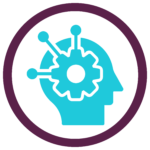DCo provide a range of psychometric testing options to meet different recruitment, selection and development needs.
The following are categories of the different types of psychometric testing options available:
DCo provide a range of psychometric testing options to meet different recruitment, selection and development needs.
The following are categories of the different types of psychometric testing options available:

Most organisations recognise that personality plays a significant part in an individual’s success at work. In recruitment processes some of these tests can determine how well a person is going to fit in with your organisation in terms of their personality, attitude and general work style. They can also be used to support individuals during a professional development process and are often used as part of a coaching intervention.
Personality tests typically measure traits related to behaviour at work, interpersonal interactions, and satisfaction with different aspects of work. Some personality tests are used to assess whether individuals have the potential to be successful in jobs others are useful for personal development.
Psychometric testing options available for personality assessment include:

These tests fall into the category of abillity tests and are standardised ways of assessing how well people typically perform in varying work tasks or react in different situations. They have the advantage of measuring potential rather than simply academic performance, and are often used to make predictions about how people will perform in a particular work setting.
Candidates’ results are scored by comparing their performance with the results of others who have done the same assessments. They are particularly useful in areas such as graduate recruitment or other situations where applicants may have little relevant job experience, as capability tests reliably indicate the potential of applicants to acquire the skills vital to an organisation’s success.
They are a way of establishing a person’s natural talent for a particular type of work which you can then develop.
We offer a full range of Reasoning Tests which are well established measures of a person’s mental capability. These tests are concerned with a person’s logical reasoning or thinking performance. They are available for different levels from school leavers through to experienced professionals and senior managers. We work with approved providers to offer a range of options in the areas of:
Tests are conducted online and individuals receive a feedback report which outlines their areas of strength and ideas for development. These tests are often offered in combination and results can be used alongside other recruitment processes to gain a more complete picture of a candidate’s ability to perform a role.

These tests fall within the category of aptitude tests. These tests are standardised ways of assessing how people typically react in different situations. We offer interest and motivation tests which are useful for individuals looking to explore their future career direction.
Tests are offered for: